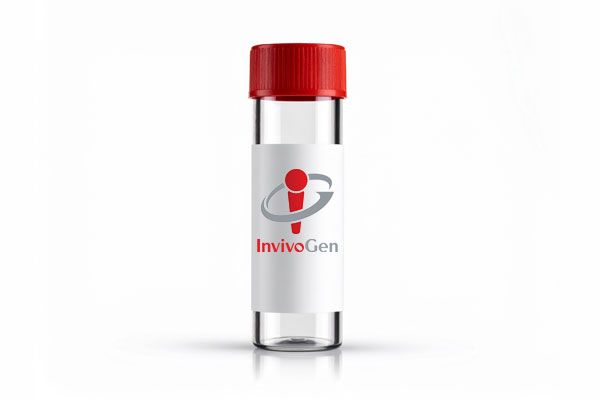
pUNO1-bTLR4
-
Cat.code:
puno1-btlr4
- Documents
Expression-ready ORF Clones
Alias : TLR4, CD284
Toll Like Receptor 4
TLR4, the first human TLR identified, is the receptor for Gram-negative lipopolysaccharide (LPS). The TLR4 gene was shown to be mutated in C3H/HeJ and C57BL/10ScCr mice, both of which are low responders to lipopolysaccharide (LPS) [1]. However, TLR4 alone is not sufficient to confer LPS responsiveness. TLR4 requires MD-2, a secreted molecule, to functionally interact with LPS [2]. Furthermore, a third protein, called CD14, was shown to participate in LPS signaling, leading to NF-κB translocation. This signaling is mediated through the adapter protein MyD88 but also through a MyD88-independent pathway that involves the (TIR) domain-containing adapter protein (TIRAP) [3].
1. Poltorak et al. (1998). Science, 282(5396):2085-8.
2. Shimazu et al. (1999). J Exp Med, 189(11):1777-82
3. Horng et al. (2001). Nat Immunol, 2(9):835-41
Specifications
Bovine TLR4 (pUNO1-bTLR4)
Genbank : NM_174198.6
ORF size : 2526 bp
Subclone : AgeI - NheI
Human TLR4 isoform 1 (pUNO1-hTLR4a)
ORF size : 2520 bp
Subclone : BspHI - NheI
Mouse TLR4 (pUNO1-mTLR4)
Genbank : JX878358.1
ORF size : 2508 bp
Subclone : BspHI - NheI
Pig TLR4 (pUNO1-pTLR4)
ORF size : 2526 bp
Subclone : AgeI - NheI
Contents
- 20 µg of lyophilized DNA
- 2 x 1 ml blasticidin at 10 mg/ml
![]() Product is shipped at room temperature.
Product is shipped at room temperature.
![]() Lyophilized DNA should be stored at -20°C. Upon receipt, store blasticidin at 4°C or -20°C.
Lyophilized DNA should be stored at -20°C. Upon receipt, store blasticidin at 4°C or -20°C.
![]() Resuspended DNA should be stored at -20°C and is stable for up to 1 year.
Resuspended DNA should be stored at -20°C and is stable for up to 1 year.
![]() Blasticidin is a harmful compound. Refer to the safety data sheet for handling instructions.
Blasticidin is a harmful compound. Refer to the safety data sheet for handling instructions.
DOCUMENTS
Documents
Technical Data Sheet
Safety Data Sheet
Plasmid Map and Sequence
Plasmid Sequence
Certificate of analysis
Need a CoA ?